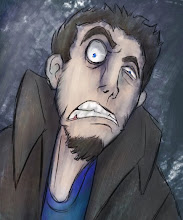Back to the main purpose of this blog, I’ll list here the key questions and the focus I want to give to this project. Don’t expect those questions to be static and decisive. For now, they are simple milestone to guide this investigation.
The main objective of this research consists of understanding the free / open source community’s perception and use of software as a contestation tools against copyright, authorship and intellectual property. This question contain multiple parts:
1- Do the community perceives the F/OSS as contestation tools? By contestation tools, I mean a way to criticize and to pressurize the traditional software corporation and their ideology.
1.1- To achieve this task, I’ll need to understand and summarize what is the ideology behind proprietary software, and what about it pose problem to the F/OSS community.
2- If they do perceive the F/OSS as a contestation tools, how can they act accordingly? What action can they make to challenge the ideology that they stand up against? How do they use those tools?
2.1- What is the place of software as a mean of contestation?
2.2- What is the role of the community versus of the role of individual in this contestation?
This small collection of questions will guide my first step in the community. New questions may arise as I progress, while other may be left out. Nonetheless, it feel like a good base to start on.
The main objective of this research consists of understanding the free / open source community’s perception and use of software as a contestation tools against copyright, authorship and intellectual property. This question contain multiple parts:
1- Do the community perceives the F/OSS as contestation tools? By contestation tools, I mean a way to criticize and to pressurize the traditional software corporation and their ideology.
1.1- To achieve this task, I’ll need to understand and summarize what is the ideology behind proprietary software, and what about it pose problem to the F/OSS community.
2- If they do perceive the F/OSS as a contestation tools, how can they act accordingly? What action can they make to challenge the ideology that they stand up against? How do they use those tools?
2.1- What is the place of software as a mean of contestation?
2.2- What is the role of the community versus of the role of individual in this contestation?
This small collection of questions will guide my first step in the community. New questions may arise as I progress, while other may be left out. Nonetheless, it feel like a good base to start on.




